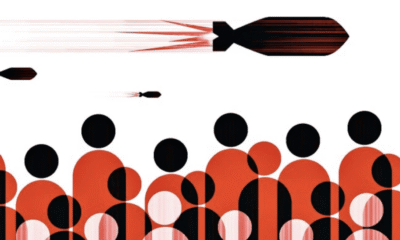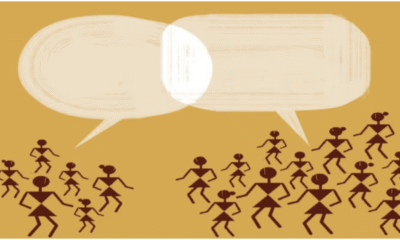
|
Getting your Trinity Audio player ready...
|
India has played its geo-strategic cards very effectively through the entire process
The diligence, dexterity and determination that Prime Minister Narendra Modihas displayed in diplomacy in the last six years and the immense geo-strategic costs that he has inflicted on India’s traditional rivals, is an important chapter. India’s handling of the stand-off with China in the last few months along the LAC is one such example, widely talked about in the diplomatic circles today with awe and admiration.
China has been a difficult neighbour. It has quietly reframed its neighbourhood policy in the last few years. In 2003, Premier Wen Jiabao articulated “Good Neighbourhood, Secure Neighbourhood, and Wealthy Neighbourhood” as China’s neighbourhood vision. In 2009, President Hu Jintao talked about his vision of “periphery diplomacy” for a “harmonious world”. But President Xi Jinping has introduced an aggressive policy with China’s neighbours since 2013 that involved expanding cultural influence, improving regional security cooperation and socialising in the region to make countries accept China’s view of its core interests, and enforcing the PRC’s sovereignty and territorial claims.
Not many could stand up to this aggression. In the South and East China Sea areas, China unilaterally enforced the Nine-Dash Line maritime boundary, while neighbours like Japan, the Philippines, Vietnam, Malaysia and Indonesia watched helplessly. In a landmark verdict, the UNCLAWS on July 12, 2016, decried China’s historical claims based on the Nine-Dash Line. But China simply rejected the verdict. The petitioner, the Philippines, couldn’t do much. It couldn’t do much either when its ships were harassed by the Chinese Coast Guard in the same area later. Vietnam had to be content with international condemnation when their fishing vessel was forcefully sunk by the Chinese Coast Guard. Recently, a Chinese survey ship, Haiyang Dizhi, encroached deep inside the Malaysian Exclusive Economic Zone in search of oil reserves, while the Malaysians were forced to look the other way. Even the Americans and the Japanese find it difficult to countenance the aggression of the PLA navy in the South and East China Seas. Their ships are regularly accosted, many times by moving dangerously close, by PLA naval warships. The aircraft carriers of the PLA navy, like the Liaoning, undertake exercises in close vicinity of the American carriers provocatively.
But one place where China finds the going tough nowadays is on the Indo-Tibetan border along the LAC. Its aggressive manoeuvres are met with stiff resistance from the Indian side. The first taste of India’s proportional response to the aggression came at the Doklam tri-junction in North Sikkim in 2017. Indian resistance forced the Chinese to backtrack. A similar proportional response is being offered by the Indian forces along the LAC in Ladakh in the last couple of months. The Indian response in the form of “proactive diplomacy and strong ground posturing” has forced China to alter its approach. India is continuing its efforts to restore peace in the region.
Meanwhile, Prime Minister Modi’s proactive diplomacy with the countries in the Arab world has led to the 57-nation Organisation of Islamic Cooperation (OIC) shedding its anti-India rhetoric. A virtual split seems imminent in the OIC between the Arab and non-Arab countries. The Arab world is led by Saudi Arabia, while Turkey and Pakistan are playing an active role in mobilising non-Arab Muslim states. Sensing the potential geo-strategic damage from the impending split in the OIC, China stepped in extending tacit support to the emerging new Islamic alliance. Prime Minister Mahathir Mohamad of Malaysia hosted a conference of the non-Arab Muslim countries in Kuala Lumpur. Turkish President Recep Tayyip Erdogan played an important role in this conference. With a view to sabotage the conference, the Saudis used their financial clout with Pakistan to force Prime Minister Imran Khan to abstain. Khan had to succumb to Saudi pressure. China stepped in to rescue Pakistan from the crisis, thus paving the way for a non-Saudi led alliance of the Islamic states.
India has played its geo-strategic cards very effectively through this entire process. It has even isolated China at the UN Security Council on two occasions in the last one year when it tried to push through a discussion over Kashmir at the behest of Pakistan. A diligent handling of the situation by India’s Permanent Representative helped in thwarting these moves, leaving China red-faced. In the latest instance, in August this year, China couldn’t secure support from any country except Niger, when it tried to initiate a discussion on Kashmir. Pakistan’s efforts to get some innocent Indians sanctioned by the UNSC as international terrorists too came a cropper due to India’s proactive diplomacy. Besides the US, several European nations like the UK and France came out quickly to block Pakistani mischief with tacit Chinese support.
So far, it has been a successful run for India. The delicate, yet effective strategic moves Prime Minister Modi made have given rich dividends. But India should be prepared for certain new challenges ahead. Turkey is taking over as the Chair of the United Nations this month. The ECOSOC, an important UN body on social and economic affairs, has Pakistan as the elected president. While India cherished its historical relations with Turkey, tensions between the countries remained a feature of the relationship primarily due to Turkey’s intimate bond with Pakistan. On Kashmir, Turkey has largely sided with Pakistan in the past, although Erdogan has tried to slightly moderate the position.
However, with China raring to get back at India at all international forums and its not-so-tacit efforts at propping up the Turkey-Pakistan-Malaysia leadership to counter the Saudi-led OIC, issues such as Islamophobia and Kashmir may return to dominate the international discourse. The new OIC led by the troika will be headquartered at New York.
India should be prepared for this new face-off at the UN. The US, with elections around the corner, will be less interested in these affairs for some time. India’s traditional allies in Europe will help, but it needs to cultivate countries like Australia, Vietnam and Japan in the Indo-Pacific neighbourhood to tackle this new challenge.
(The article was originally published in Indian Express on September 12, 2020. Views expressed are personal.)



